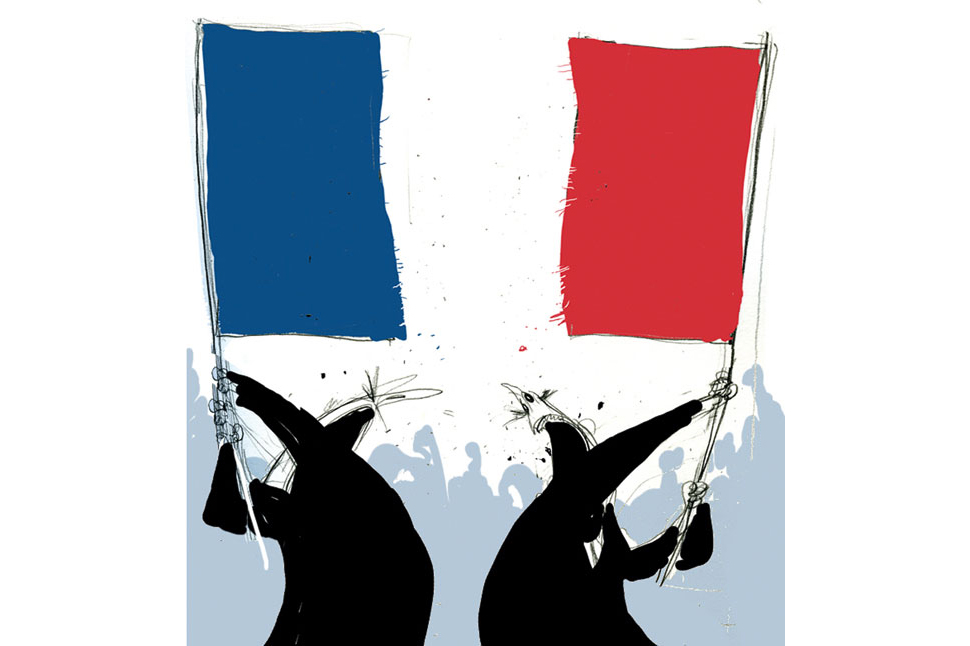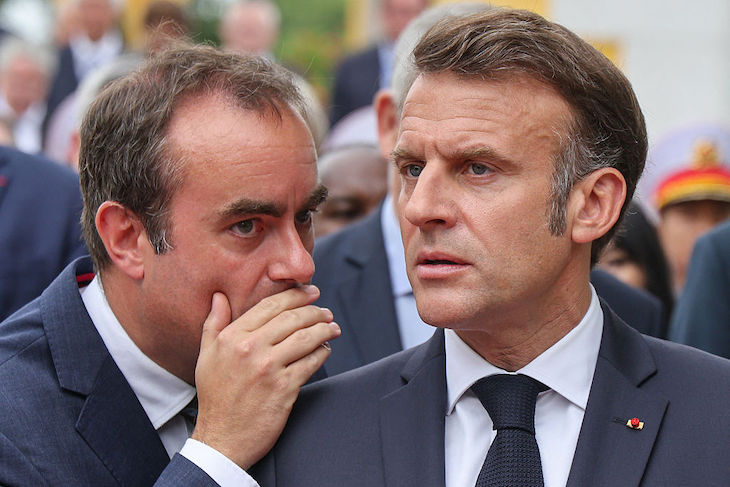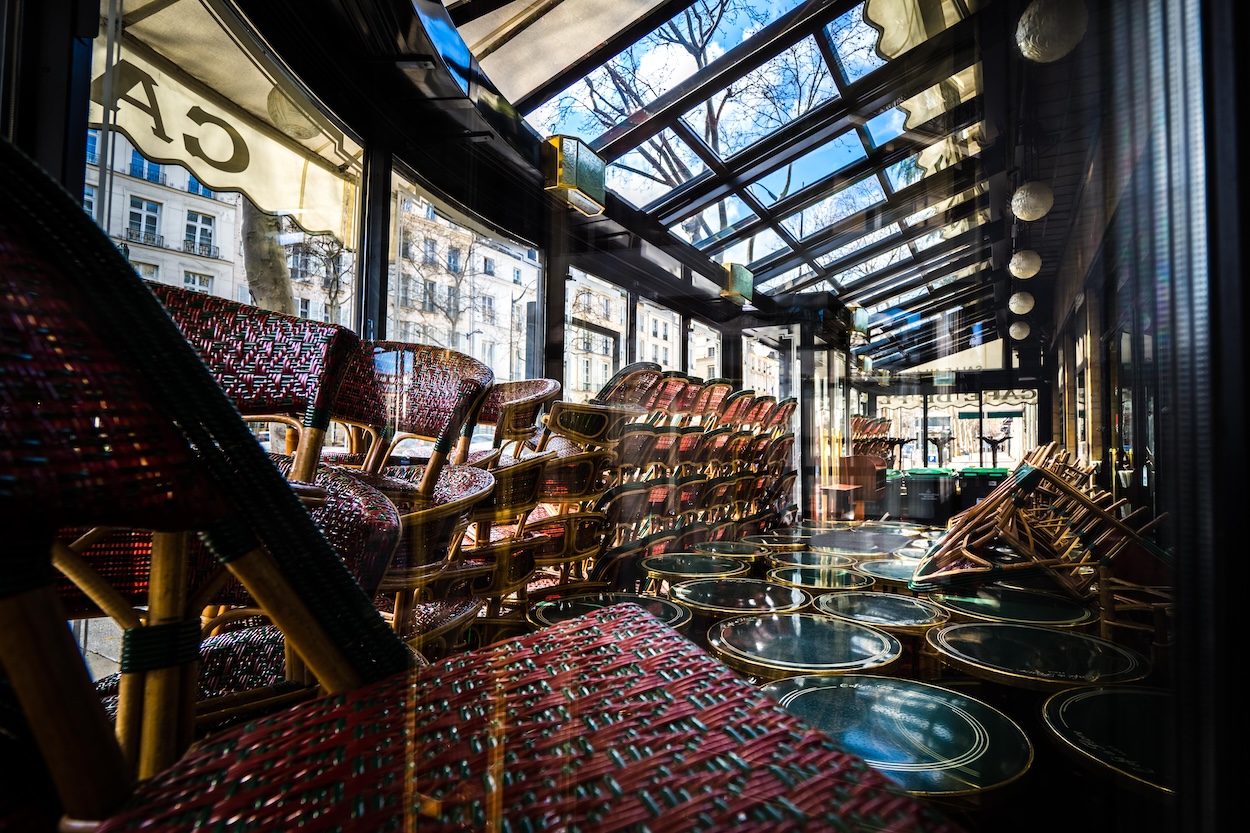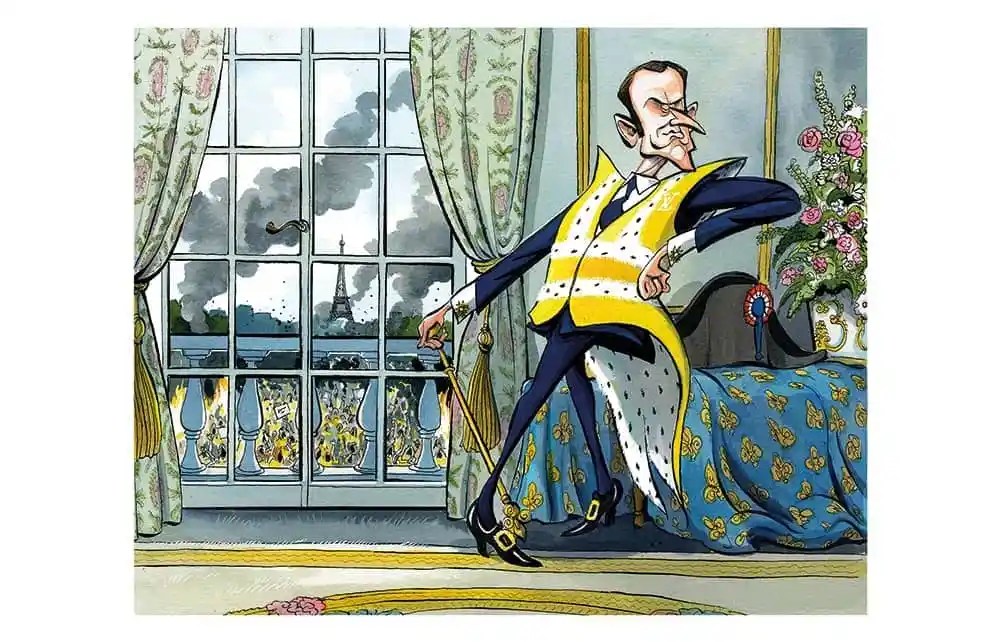Today is the 232nd anniversary of the great French revolution. Time to take the temperature of the nation. The regional elections of June 20 and 27 changed nothing of France’s regional complexion, but revealed much about the worrying state of the nation.
The same regional presidents were reelected to the 12 metropolitan regions: seven for the right, five for the left. The traditional parties cried victory. They have been fighting for their survival since 2017 when Macron’s LREM party burst onto the scene from nowhere. 2021’s revenge was the more sweet for the old guard, with a serious beating being given not only to Macron’s camp — which scored a humiliating seven percent of the vote — but also to Marine Le Pen’s Rassemblement National, which had hoped to gain three regions but got none and came third nationally.
But this apparent stability in France’s electoral map hides deep unrest. First, two out of three voters abstained in both rounds, a sign they did so with intent. The reason may be voters’ lack of affinity for the 2015 reformed regions, which are seen as too big and remote. More gravely, it seems voters rejected what was on the political menu.
A recent opinion poll indicated that many people were indifferent to what was politically on offer. Abstainers felt that neither the left, right, nor Macron’s ‘new world’ had a solution to their problems, believing them all to be powerless in the face of elites, globalization and the EU. Meanwhile 27 percent of abstainers hinted, rather chillingly, that they would express their discontent with the political class in other ways.
When voters have no home they take to the streets — especially in France — as with the gilets jaunes and the myriad daily aggressions committed against representatives of the French state, from police, fire and ambulance crews to local mayors and public officials.
Fear of social unrest led a swathe of — albeit retired — French generals and senior officers to warn in a recent open letter that an insurgency would result from the political class’s ‘laxity’ and failure to defend French citizens’ traditional values. They warned not of a coup d’état — as the national and international media wrongly concluded — but of ‘civil war’, with the political class required to call in the army to restore order. Hyperbole, perhaps. But even Emmanuel Macron — in receipt of French security service warnings of social unrest when lockdown restrictions end — described widespread voter abstention as ‘a democratic warning’.
It is worrying too that turnout in the regional elections mainly came from the property-owning elite worried about tax rises, while the young, the poor and women abstained: regression by stealth to a 19th-century property qualification. Though sociologically different, it is redolent of the British divide between winners and losers from globalization that led to Brexit. France’s ‘forgotten’ majority’s frustration will balloon if no presidential candidate addresses issues like restoring national sovereignty, refusing creeping EU integration, immigration, identity politics and insecurity.
The political menu cannot merely consist of dishes catering only to the metropolitan elite. Hence the rejection of Macron, but also of Marine Le Pen. Her ‘detoxification’ of RN to appeal to the traditional middle-class right reduced her appeal among France’s ‘left behinds’. To take one: the RN has removed Frexit as a policy and is less caustic on the EU. It has done so precisely when, according to a European Council on Foreign Relations poll of EU member states’ citizens, 62 percent of French respondents say the EU project is ‘broken’, the highest of any state. RN has left voters orphaned just when French citizens no longer think EU membership is ‘a good thing’ for their country.
So does the regional vote suggest a return to France’s traditional parties of left and right? In short no. Both left and right may dream of getting back in the game, but their vote share was down, their programs are unclear and they have no obvious natural leaders. But it does suggest latent citizen unrest that could find an outlet in the 2022 presidential elections.
Runners in the race remain largely unnamed. But barring any surprises, the candidates are likely to be much of a muchness. That suits Macron and Le Pen. They will probably just make it into the second round again. But this time Macron may only win by only a slender majority as the traditional ‘Republican’ reluctance to vote for RN will have diminished and his 2017 unblemished record will be no longer. Abstentions may well be high and the mood in the country brittle. President Macron will struggle to implement his reform agenda in these circumstances. But most worrying of all, given widespread citizen disenchantment — not to say anger — France could well be teetering on the brink of severe social unrest.
This article was originally published on The Spectator’s UK website.

























